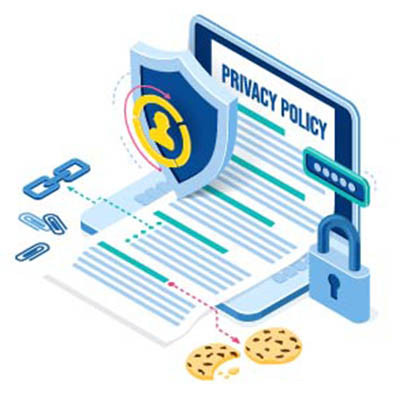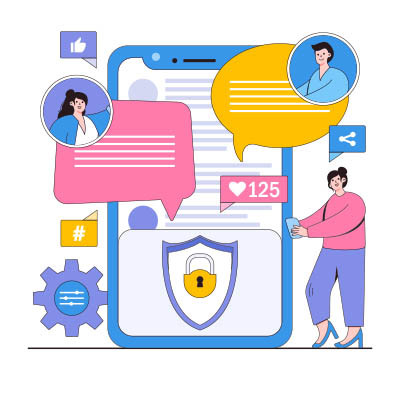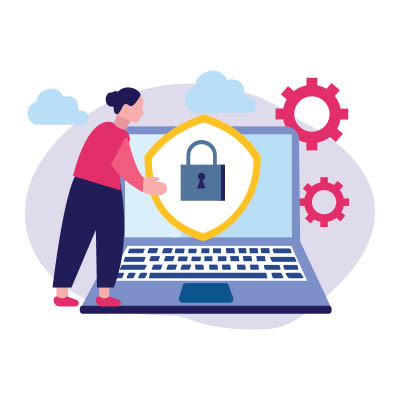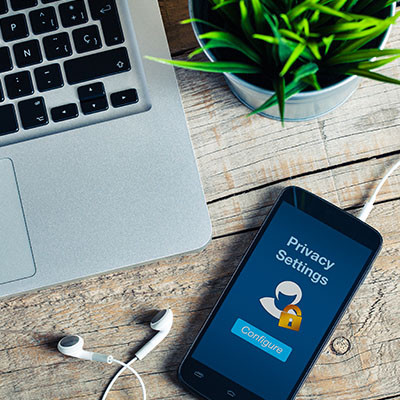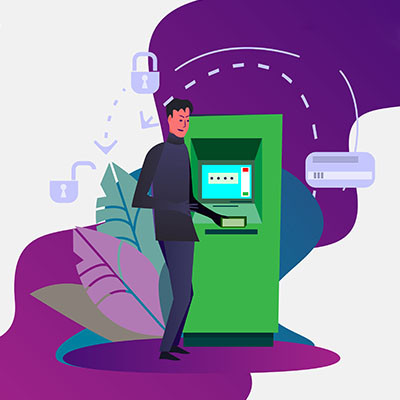With the rise of generative AI infiltrating pretty much every sector of society, it’s no wonder that businesses are finding creative new ways to use it for their gain. However, you need to be especially careful when using generative AI in the workplace. Today, we want to cover three common no-no’s that your business should keep in mind as it navigates the wild landscape that is AI.
415 IT Blog
We've all been there. You're trying to quickly find that one photo from your vacation, or that important PDF for work, and you end up endlessly scrolling through a digital wasteland of screenshots, random downloads, and duplicates. Our smartphones have become extensions of ourselves, but without proper care, they can quickly turn into cluttered, inefficient tools that cause more frustration than they solve.
We all know companies collect a lot of data. After all, your business is no exception to this rule, and you likely collect significant consumer data to facilitate operations. But if you get the itch to protect your personal privacy (and you should), there are ways to limit how much advertisers, criminals, and other companies can gain access to. Here are just a couple of ways.
You don’t want to get spammed; nobody does. Unfortunately, it happens to EVERYONE, and it’s just getting worse. All this unwelcome correspondence happens over the phone, through email, and especially on social media. In today’s blog, we’ll talk a little bit about how social media puts users at risk and what you can do to keep that risk from becoming a problem for you.
When hackers steal data, they don't just sit on it. Sometimes they delete it, but most of the time, they sell it or use it for illegal activities. A lot of this stolen data ends up on the Dark Web, a hidden part of the Internet where people do shady things. That's why it's so important to keep an eye on the Dark Web to protect your business.
As technology continues to gain prominence in healthcare, it plays an increasingly vital role. Advancements in technology have allowed the healthcare industry to stabilize costs, improve access, and personalize care delivery—objectives that were challenging in the past. These benefits come with a potential downside: data privacy issues, which are becoming more concerning as technology advances.
Facebook remains one of the most visited places on the Internet. Meta (the parent company to Facebook) also features WhatsApp and Instagram on their roster and has faced numerous security and privacy failings over the years. In this week’s blog, we’ll take a brief look at some of the most noteworthy.
Hackers are always on the lookout for personally identifiable information, or PII, as it’s an immensely lucrative resource. You’ll need to protect it if you want your business to continue operating safely and efficiently. Let’s go over what PII entails and what kinds of data you might find under this term.
Your business is likely subject to certain compliance laws and regulations depending on the type of data you collect from your clients or customers. Today, we want to emphasize the importance of your business considering regulation and compliance when managing its data and IT resources, as without doing so, you run considerable risk.
Digital monitoring is a bit of a contentious topic in business, but according to a survey from Gartner, it might not be as contentious of a topic as previously thought. In fact, employees are often in favor of digital monitoring under the appropriate circumstances, as long as it doesn’t get in the way of their jobs.
It probably isn’t a question you’ve put much thought to, but tell me: who do you think feels the greatest impact from card skimming schemes, where a payment card’s data is captured so a cybercriminal can make use of the card’s associated account? While it isn’t a good situation for anyone, some are impacted more than others.
As time has passed, cybersecurity attacks have become another way some organizations and nations engage in warfare. You can argue that there is a war going on at all times in cyberspace while hackers—many of which are sponsored by government agencies—try to outdo security researchers at all turns. One such scenario sees customers in the United States and Israeli defense technology sectors becoming the target of “password spraying.”
Have you ever wondered what it takes to hire a hacker to perform a specific task? Thanks to the findings of Comparitech, we can get a look into the average pricings of various hacking services that can be found on the Dark Web. While we would never condone ever taking advantage of such services, it’s a fascinating look into the business of cybercrime, and one that can give you an idea of just how easy and accessible it is for hackers to make your life difficult.
The term “encryption” has found its way into the mainstream, appearing just about anywhere information security is brought up. Whether it is ransomware encrypting data or the encryption protecting your password security, it is a powerful tool that can be used for both good and evil. Let’s discuss the former and how you might use encryption in the workplace.
The world might still be suffering from a pandemic, but travel is slowly starting to pick up once again. When you feel safe and comfortable traveling again, it is of critical importance that you take steps to secure your technology while out of the office—especially your mobile devices. Here are some big ways that you can prioritize security while traveling.
Data privacy is a bit of a hot topic in today’s business environment, especially with high-profile hacks and ransomware attacks emerging and putting organizations at risk. In particular, the emerging concept of “privacy engineering” has a lot of businesses thinking about how they can secure their organization and future-proof their data privacy infrastructures.




